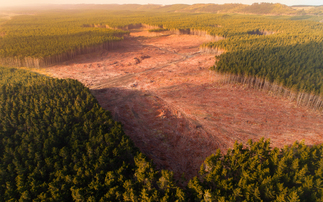New report warns that climate change will impede progress on tackling undernourishment
Climate change is likely to impede progress on tackling undernourishment around the world in the decades ahead, according to a new report released yesterday by the US Department of Agriculture (USDA).
The report, which was unveiled at the UN climate summit in Paris, highlights the risks posed by climate change to global food security, including disruptions to the production, transport, and safety of food.
"The past six years have been a success story in terms of global food security," said US agriculture secretary Tom Vilsack in a statement. "Two hundred million fewer people are food insecure today than they were six years ago. The challenge we now face is whether we can maintain and even accelerate this progress despite the threats from climate change."
The report reviewed a range of different climate change scenarios, and found that in the worst case where atmospheric carbon dioxide concentrations hit 850 parts per million (ppm), the number of people at risk of undernourishment could increase by as much as 175 million above today's level by 2080. The resultant risks would be greatest for the global poor and those living in tropical regions, the report said.
However, scenarios with lower population growth, more robust economic growth and lower greenhouse gas emissions resulted in large reductions in the number of food insecure people compared to today.
Dr. John Holdren, director of the White House office of science and technology policy, said a focus on adaptation in the food system will be critical as the climate changes.
"Accurately identifying needs and vulnerabilities, and effectively targeting adaptive practices and technologies across the full scope of the food system, are central to improving global food security in a changing climate," he said in a statement.
The report stopped short of issuing detailed predictions for the future of US agriculture, but noted that changes in the climate will affect producers and consumers in the US by altering the type and price of food imports reaching the country and the export environment that enables global trade.
It also noted that climate change will likely increase demand from developing nations with relatively low yields for advanced technologies and practices developed in the US.
The report came on the same day as a separate study from the Germanwatch NGO ranked countries based on the weather-related loss events experienced in 2014 and 1995 to 2014.
The Global Climate Risk Index reported that Serbia, Afghanistan and Bosnia-Herzegovina were the countries most impacted by climatic events in 2014.
"Patterns of extreme precipitation is what people and countries will likely face in a warming climate," said report author Sönke Kreft. "Climate related impacts are unfair. Nine out of 10 most affected countries in the period 1995-2014 are among the 'low' or 'lower- middle' income countries, with the most impacted being Honduras, Myanmar and Haiti."
This article is part of BusinessGreen's Road to Paris hub, hosted in association with PwC.






